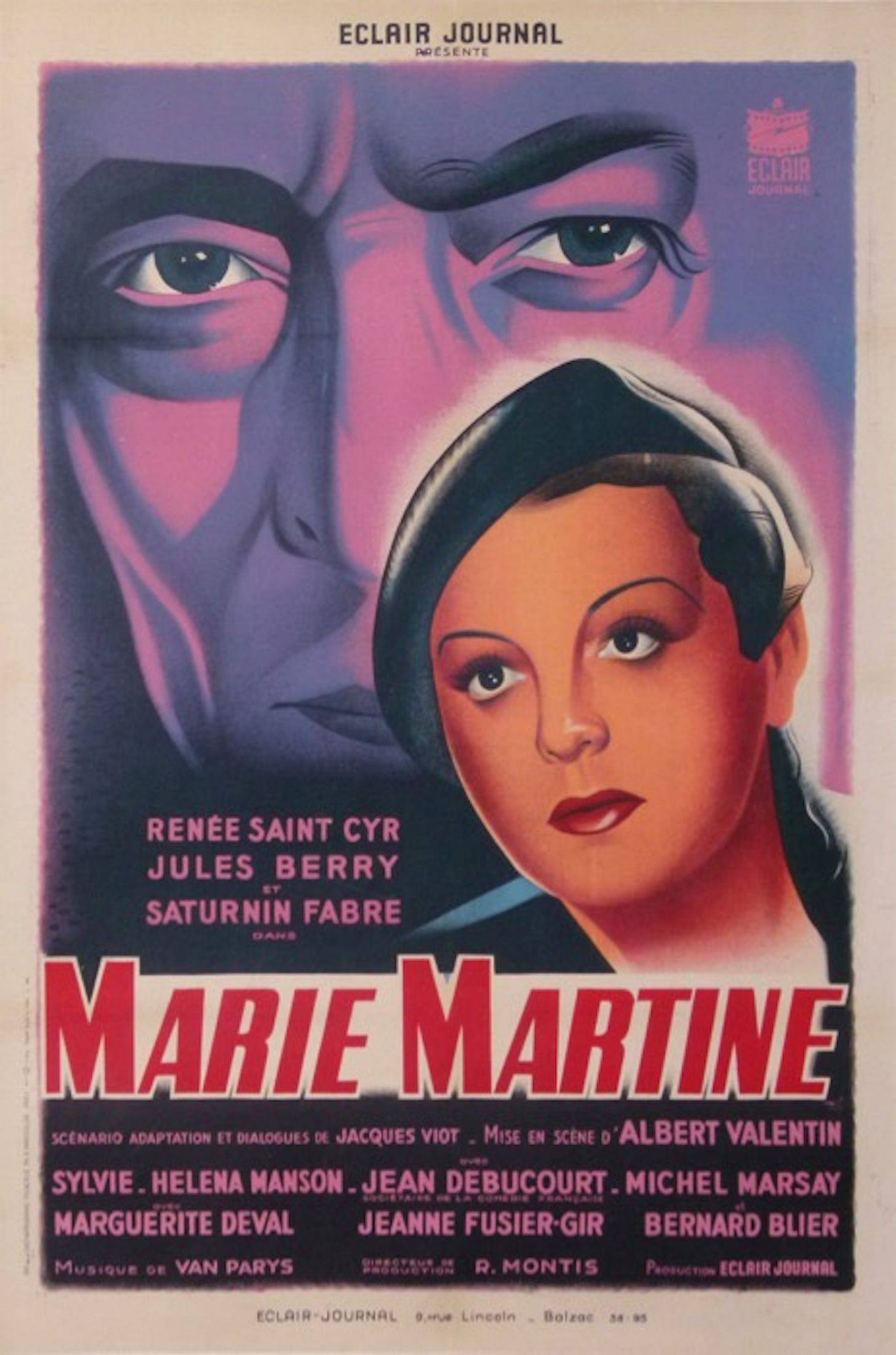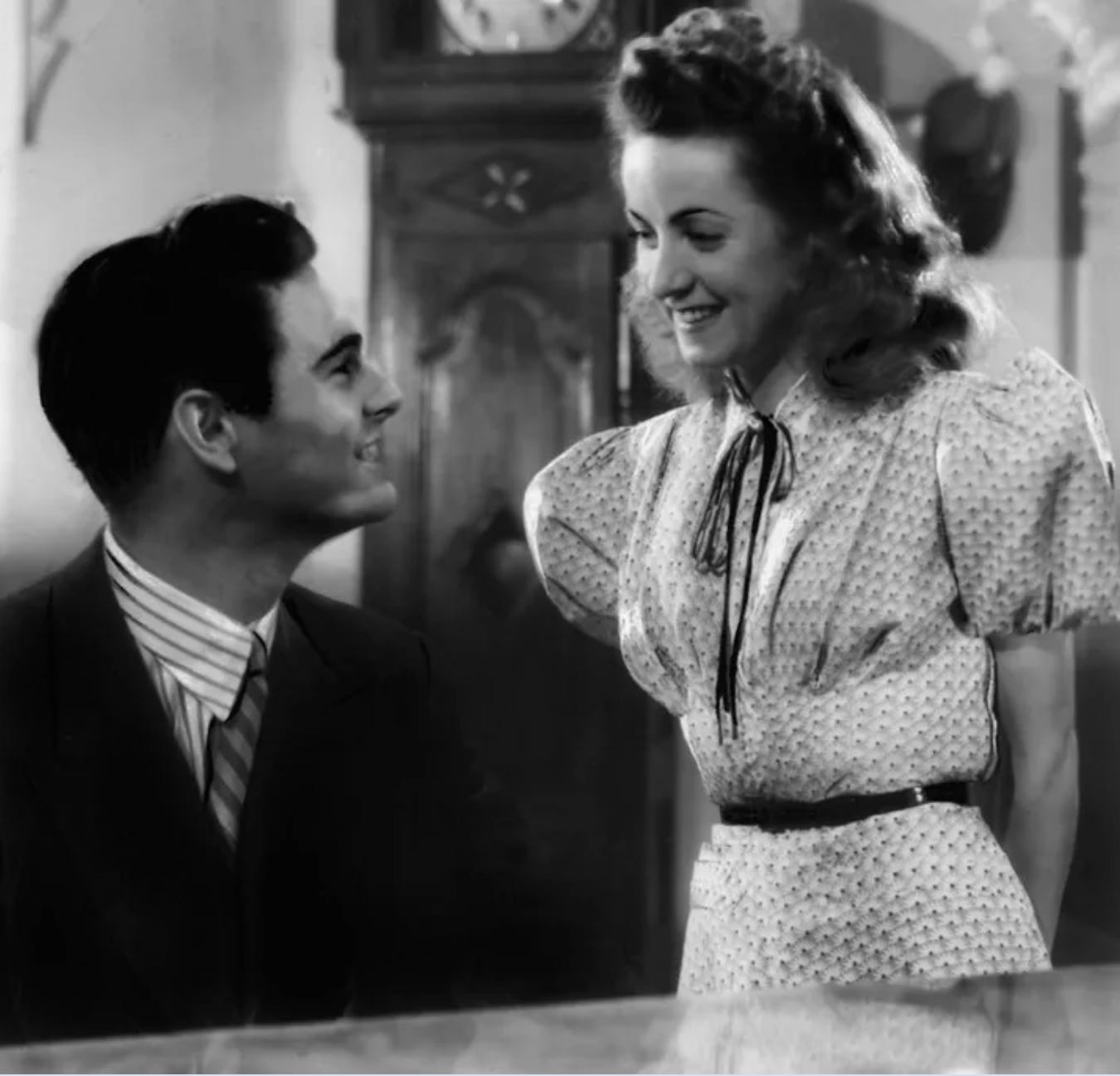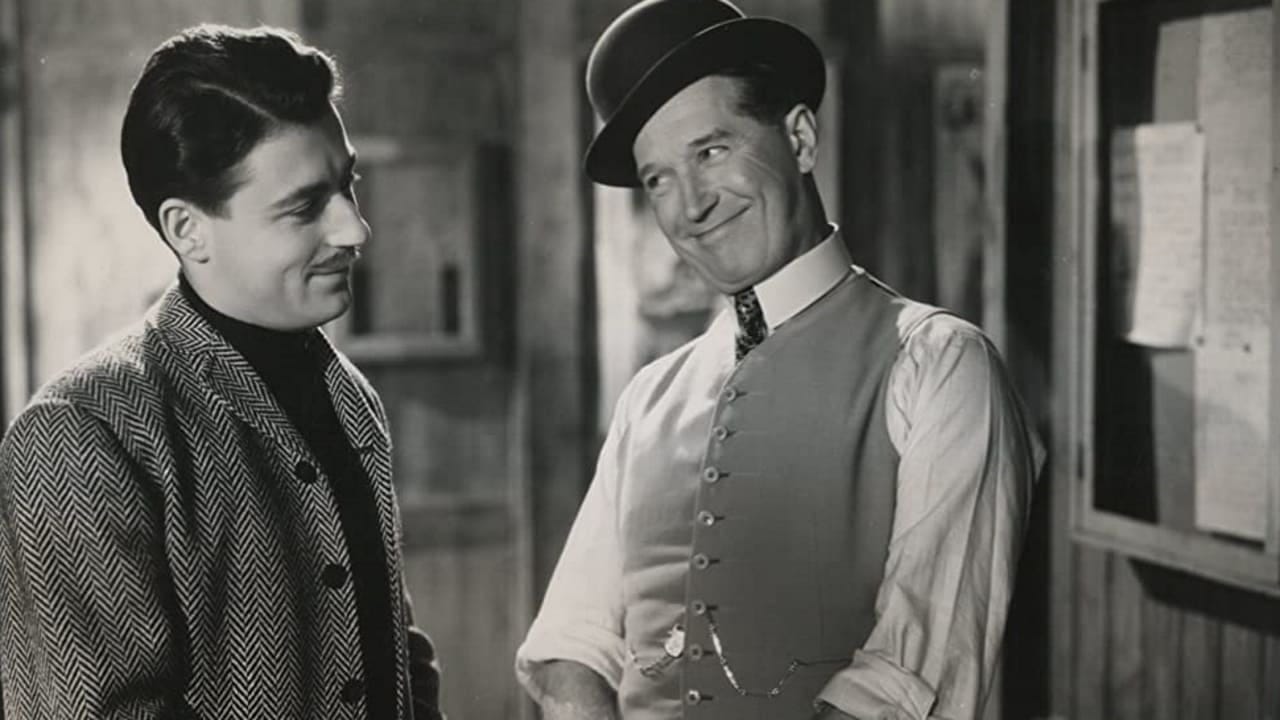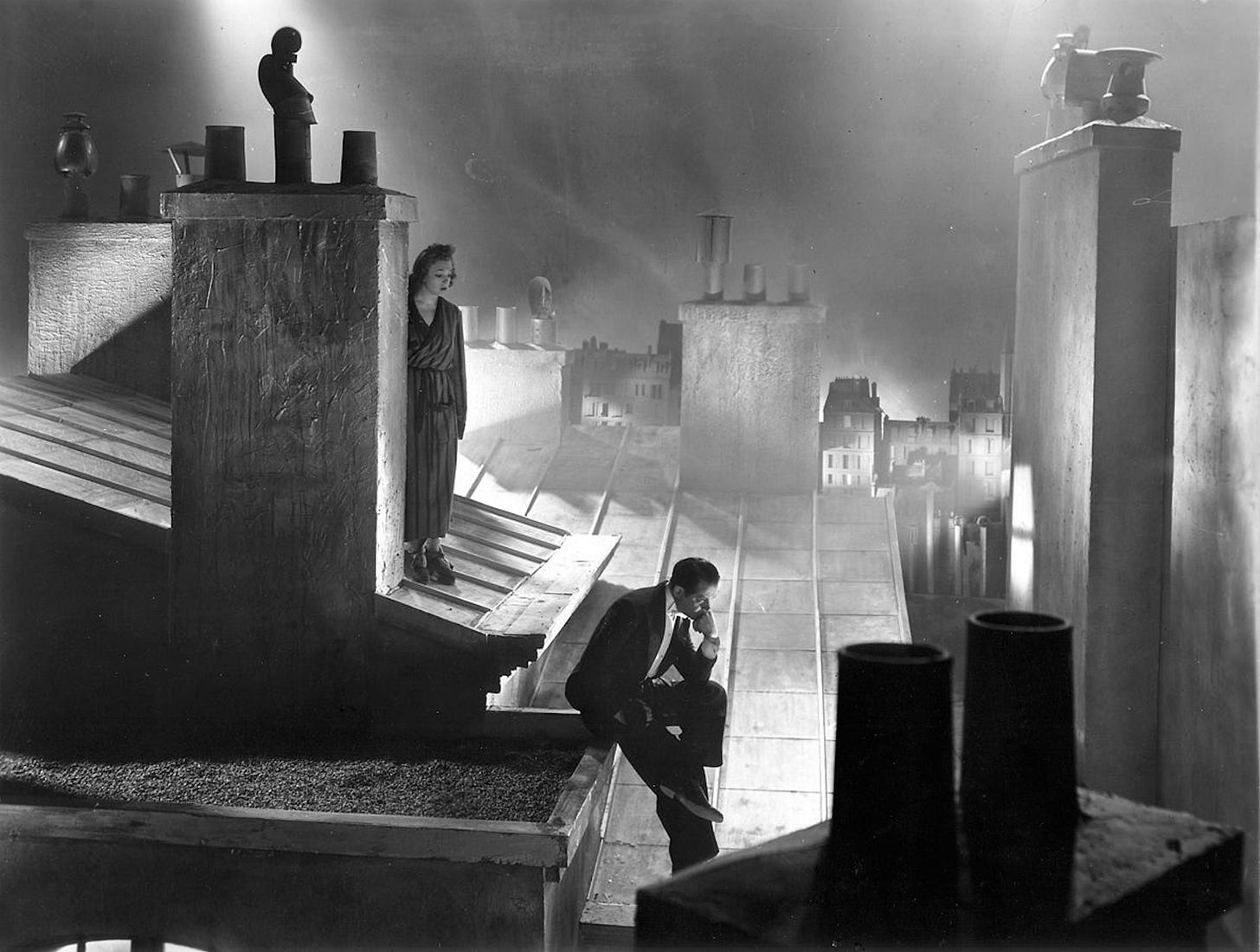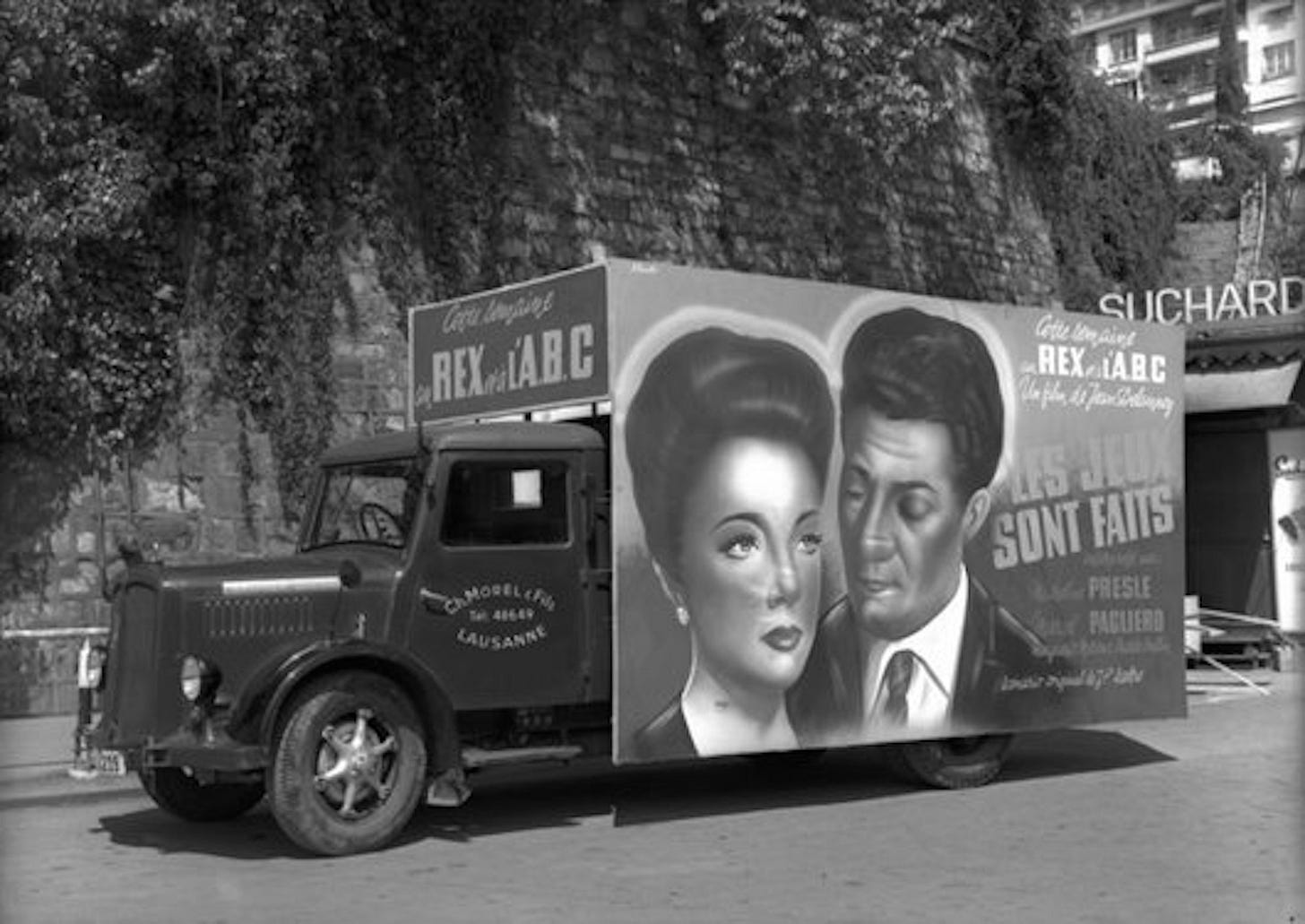Faces from "The Other Side," part 2
THE FRENCH HAD FACES IN THE FORTIES, TOO...
For those who may not have seen it previously, here is the full schedule for “Papa Strikes Back!” (aka THE OTHER SIDE OF THE LOST CONTINENT ‘23), our deep dive into an area of French cinema that is still among the most neglected:
We’ve given you the series overview (February 24), along with a “faces” preview of the first weekend (March 3); now we move into the 1940s, where the Occupation raises the stakes—even for the films that evade the irruptions of the war. In THE FRENCH HAD A NAME FOR IT, we’ve seen the darker side of wartime cinema (LE CORBEAU, LES MAINS DU DIABLE, VOYAGE SANS ESPOIR, GOUPI MAINS ROUGES, and others from the war’s edges: MENACES, SORTILEGES, LE DIABLE SOUFFLE) but in this series we’ll see a more varied response to wartime from filmmakers.
AND our second weekend (Saturday, April 8) begins with another lost auteur, Albert Valentin, who is probably the greatest creative casualty of the post-war retributions that took place on those actors and directors who either “collaborated” with the Nazis by working for Continental Pictures and/or made films that ventured too close to the hoarier truth regarding how the French behaved during the war. Valentin essentially had both of these “sins” to answer for after the Liberation; unlike Henri-Georges Clouzot, he was not able to resurrect his directing career in the post-war era.
What we have for you, then, are the exceptionally promising initial efforts from a director whose potential will forever remain untapped.
The essential opposition in MARIE-MARTINE is boldly captured in the film’s one-panel poster above. FRENCH HAD A NAME FOR IT regulars might think that those eyes scowling out from that purple face belong to Paul Meurisse (well known for his many appearances in French noir), but it’s actually the great character lead Jules Berry, who specialized in scoundrels of all kinds—you’ll remember him most vividly from LE JOUR SE LEVE.
Here he’s just as despicable, playing scandal-monger Loic Limousin, a flamboyantly petty pulp novelist who aches to heap more scandal on the already star-crossed Marie-Martine (Renée Saint-Cyr). Valentin tells her story in a series of flashbacks that are more radical in nature than what had been attempted anywhere to that date.
We kick off our second weekend (April 8-9) with it so that you’ll be fresh and ready for its complexities, which have been compared to much more recent films like MEMENTO and AMORES PERROS. Fear not, however: despite the temporal disjunctures, you’ll be wondering all along whether the louche Limousin will be stopped at the pass in his crusade to further crucify the unfortunate Marie-Martine!
Valentin captures the clash between classes in LE VIE DE PLAISIR (1944), a film that takes dead aim on the “200 families” who found ways to protect themselves even while France was conquered and divided by the Nazis. He draws a sharp contrast between the energetic glamour of Parisian nightlife and the cloistered bubble of privilege eternel that harshly collide in the tumultuous marriage of nightclub owner Albert Préjean and ruling class belle Claude Génia that we view in (what else?) retrospect via the framing device of an especially nasty divorce proceeding.
Préjean, a reliable long-time leading man with a tendency to underplay, locates an untapped restlessness in his role, which assists LA VIE DE PLAISIR to weave together its acidic critique of the upper classes with a strong counter-dose of poignance. An often-scabrous script from the masterful Charles Spaak helps the film’s “back-and-forth” perspective to take hold and carry through to its caustic climax.
FOR the evening, we bring you lighter fare, but not without its own complications and involvements…
And that starts with a third assignation with Danielle Darrieux, whose personal & professional life was about to quickly become more complicated (a divorce, a tempestuous marriage, and a Liberation-era backlash due to her work for Continental and travels to Nazi Germany during the war). Happily, none of that seeps into PREMIER RENDEZ-VOUS (1941), the last of her vibrant, Cinderella-esque comedies directed by her (soon to be ex-) husband Henri Decoin. Darrieux’s star power shines at its brightest, carrying a slender story that picks up steam when Decoin channels Ernst Lubitsch with a plot pivot reminiscent of THE SHOP AROUND THE CORNER.
The Quai aux Fleures is an actual location in Paris, one of several that are referenced in film titles (LES DAMES DU BOIS DUE BOULOGNE, IMPASSE DES DEUX ANGES). It’s located on the Ile de la Cité, the island in the Seine that Parisians and tourists alike consider to be “ground zero” for the city’s identity (it’s also the home of Notre-Dame, undergoing a $1 billion restoration after the horrifying fire that befell it in 2019).
The often-unwieldy titles for films that incorporate place-names definitely created a mouthful for our Saturday evening finale: LES PETITES DU QUAI AUX FLEURES, which doesn’t translate to anything less tongue-twisting. Like LES DAMES, it takes place in a present-day Paris that shows no effects of the Occupation, and focuses on matters of the heart and their operatic peregrinations.
Director Marc Allegret delivers what some have called “the first rom-com,” but such glibness undercuts the incredible charm with which pathos and comedy intertwine in this story of four fulsome daughters of a harried Parisian bookseller and their romantic/emotional entanglements. It also has a cast to die for, featuring four suitors who all became significant personages in world cinema: Gérard Philipe, Bernard Blier, Louis Jourdan, and Daniel Gélin. The daughters are no slouches either: eternal teenager Odette Joyeux (closer to thirty at the time!) is joined by actual teenager Daniele Delorme, who would soon marry Gélin and have a lengthy, significant career of her own (including her incredible turn in Duvivier’s VOICI LE TEMPS DES ASSASSINS, a huge hit at our very first FRENCH HAD A NAME FOR IT show in 2014).
You’ll leave the theatre Saturday night with a wry but wistful smile, wishing that the current difficulties facing us today could be more like what you’d just seen…in films that deftly managed to (temporarily, at least) hold a terrible war at arm’s length.
SUNDAY brings us an amazing smorgasbord of singular films that could only be made in France. They focus on two performers who haven’t gotten the type of attention that their long careers deserve—in the matinées, François Périer, and in the evening, Micheline Presle (the last surviving great star from the “cinema de papa” era: she turned 100 last August). The two of them were memorably paired in a rare but potent thriller penned by the fabled VERTIGO duo—Boileau & Narcejac (LES LOUVES, which also starred a pre-nouvelle vague Jeanne Moreau and the always formidable Madeleine Robinson—we screened it at FRENCH 5 in 2018).
Périer is remembered today more for his appearances in later neo-noir films (you might recall him as the cagey night club owner in Melville’s LE SAMOURAI) but his early career is studded with intriguing, offbeat performances. He is highly credible as a romantic figure even as he is capable playing a protracted bumbler and dupe (as we will see). In René Clair’s bittersweet tale of the French Silent Age, LE SILENCE EST D’OR (SILENCE IS GOLDEN) he is the protégé of a master director (Maurice Chevalier) who is being schooled both in filmmaking and in wooing. Complications ensue when Périer “cuts in” on Chevalier’s plan to make a young actress (the winsome Marcelle Derrien) into his mistress.
Périer looks downright suave with his mustache, a subtly clever way for Clair to differentiate generations in his tart but buoyant tale. In our second film, however, Périer is clean-shaven, and he winds up being a dull blade in a double-barreled revenge plot concocted by the razor-sharp, hawkish-gazed Louis Jouvet in UN REVENANT (1946), Christian-Jaque’s brilliant “avenging backstage devil” tale that collides comedy, farce, and noir in astonishingly choreographed cross-currents. Périer’s gift is such that you will both laugh at him and take pity on him, and become intensely worried about his fate as events escalate. (And, of course, you will marvel at the one-and-only Jouvet, in what might be his greatest film performance.)
SUNDAY evening takes us from theatrical complication to worlds of outright fantasy (but worlds that are at the same time all too real). The focal point for our closing night journey is the twinkly but intense Ms. Presle (pronounced “prell”), who burst on the scene during the Occupation era due to her undeniable talents and the absence of both Michèle Morgan (exiled to America) and Danielle Darrieux (personal and career complications).
In LA NUIT FANTASTIQUE, she is literally a Dream Girl—who magically, mysteriously enters the nocturnal life of a law student (Fernand Gravey) whose afterschool work requirements have his candle burning not only at both ends, but in the middle as well. Director Marcel L’Herbier, a mainstay of French silent cinema, knows just how to navigate a film like this, with texture, danger, whimsy and atmosphere to burn. Of course, as in the dreams of many men, she is something of a damsel in distress—but she is also feisty, funny, and flip—just the type who might find that being the love-object in a dream is just different enough to take a tumble with. It’s fun to watch the romantic momentum turn like a lazy Susan in slow motion.
With a tremendous supporting performance from character actor Saturnin Fabre (whom you’ll also see in a memorable role in MARIE-MARTINE the day before), LA NUIT FANTASTIQUE is an unalloyed delight.
AND it’s a wonderful lead-in to what is arguably Presle’s greatest performance in LES JEUX SONT FAITS (aka THE CHIPS ARE DOWN), where her beauty, intensity and nobility shine with the power of a thousand suns. She’s the estranged wife of a dictator’s sycophant, who fancies her more pliant younger sister … and who then proceeds to poison her in the first five minutes of the film—which, of course, is when things really begin! In the afterlife, she meets a martyred resistance leader (Marcel Pagliero) from the same totalitarian land. They fall in love—and due to the strict but whimsical apparatus in the Heaven concocted by playwright Jean-Paul Sartre, they are given a second chance to avenge their deaths by righting the wrongs against themselves (and, of course, the folk subject to the whims of their dictator).
It’s a tall order—and an irresistible tall tale, bound together in large part due to the radiant core that Presle brings to her role: honor, duty, love, justice—she embodies it all in a way that is beyond anything you’ve seen in any other heroine. Can she and Pagliero pull off the greatest long shot ever conjured up by a sly existentialist? You’ll just have to see for yourself…
FACES…indelible faces, beautiful or strange, familiar or new: it’s what our ongoing excursions into the “cinema de papa” timeframe continually discover, and put the lie to the dismissals (still ongoing!) for this astonishing rich “lost continent.” We hope that the above account convinces you to take a somewhat less drastic leap of faith than what is required by Presle and Pagliero in LES JEUX SONT FAITS, and secure your seat in the Roxie’s screening room by purchasing an all-festival pass ($99 for 18 films) while they are still available.
We hope to see you there!



